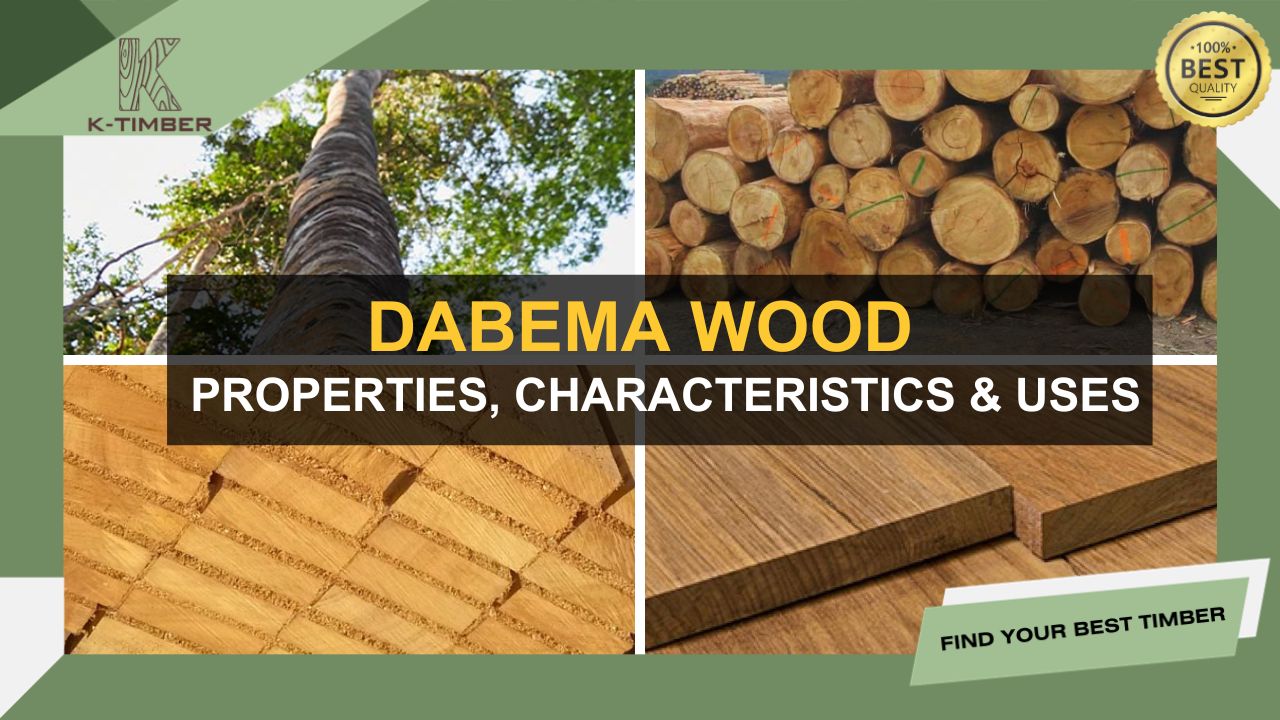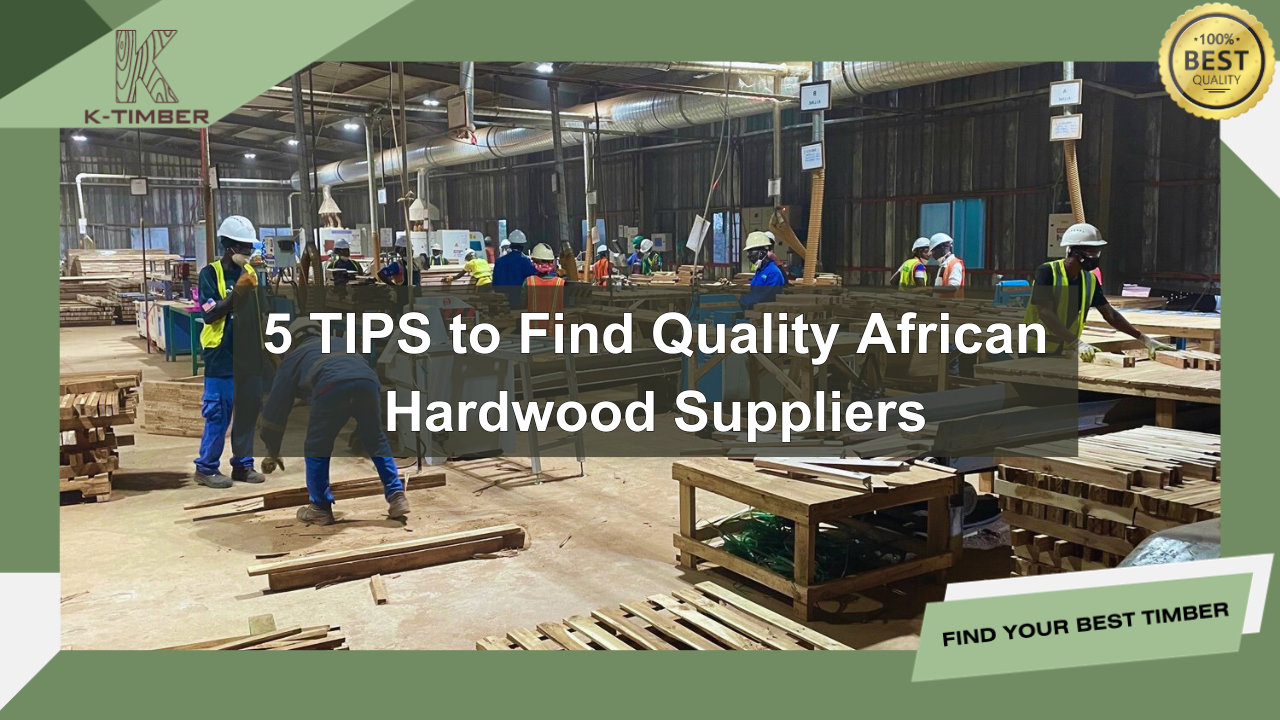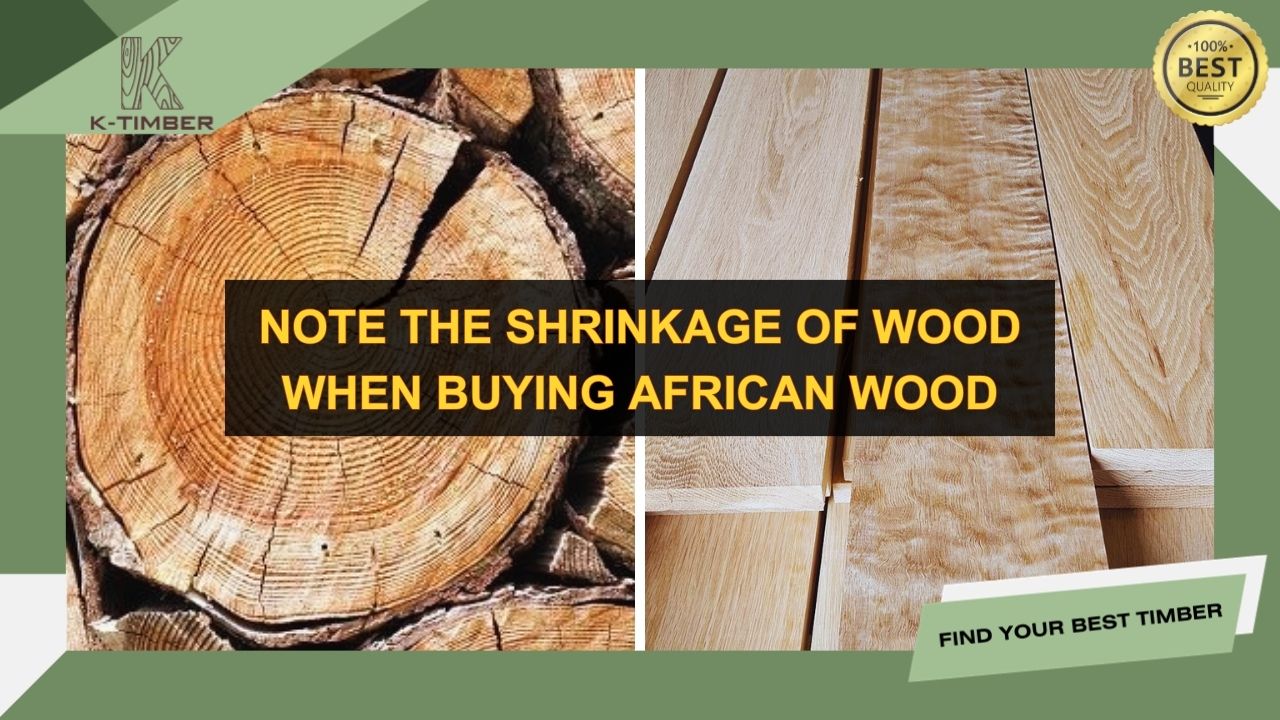When it comes to choosing wood for outdoor furniture, decking, or other woodworking projects, Eucalyptus wood vs Teak are two of the most popular types of hardwood. Both are durable and robust, but Teak excels significantly in terms of durability and stability. Meanwhile, Eucalyptus wood is more reasonably priced and has a more prominent color. This is also why carpenters often look for alternative options with similar characteristics. And if you are planning to use Eucalyptus wood instead of Teak in your woodworking project, join K-TIMBER to explore the differences between Eucalyptus wood and Teak in the article below.
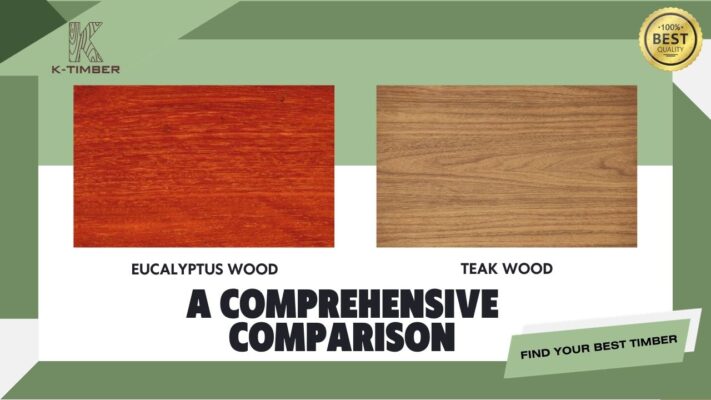
Table of Contents
What is Teak wood?
Teak wood is a type of tropical hardwood that is highly valued for its exceptional durability and natural resistance to the elements. It originates from the regions of India and Southeast Asia (Myanmar, Thailand, Laos). It is the most widely used wood in the world due to its natural beauty; teak has a golden brown color that gradually turns to silver over time, making furniture made from teak increasingly attractive as it ages.
Teak wood contains a high amount of natural oils and rubber, which means it is very sturdy, highly durable, and almost impervious to water under harsh weather conditions, even without treatment.
Teak wood comes from the Tectona grandis tree. This is a tall, deciduous tree most commonly found in South and Southeast Asia. The tree can grow up to 50 meters tall and live for 100 years, which is why it takes at least 25 years to mature and be ready for harvesting. This also explains why teak wood is so expensively priced.
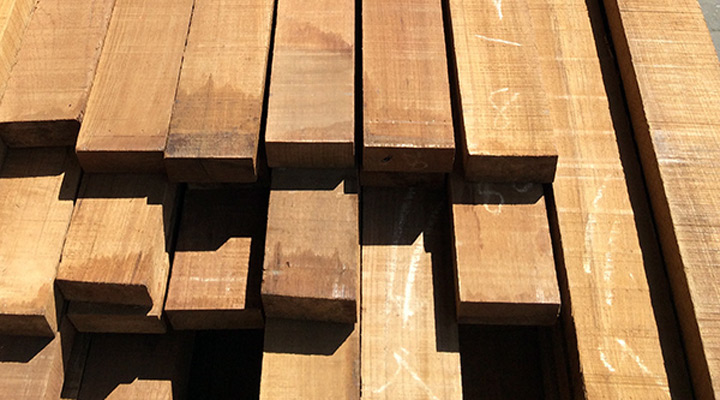
Properties of Teak wood:
- Appearance: Golden or medium brown
- Durability: Highly durable
- Hardness (Janka): 1,070 lbf (4,740 N)
- Average Dried Weight: 40.9 lbs/ft3 (655 kg/m3)
- Workability: Fairly easy to work with
- Cost: High
What is Eucalyptus wood?
Eucalyptus wood is primarily grown in Australia. It has now been widely cultivated around the world in climates similar to those in Asia, Africa, and the Americas. Eucalyptus wood is a fast-growing tree, making it readily available and much cheaper than teak and other types of wood.
Eucalyptus wood is reddish-brown in color and has moderate resistance to moisture and insects. Due to its rapid growth rate, eucalyptus is considered a sustainable alternative to teak. However, eucalyptus wood is prone to warping and cracking if not properly treated. It is mostly easy to work with due to its good cutting, planing, turning, gluing, and finishing properties.
READ MORE: Eucalyptus Wood: Properties, Characteristics & Uses
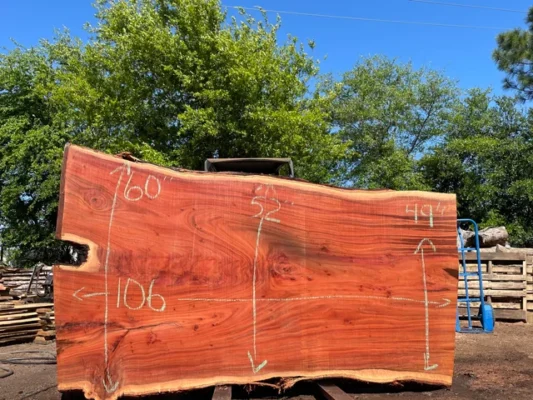
Eucalyptus wood specifications:
- Appearance: Reddish – brown to cream
- Durability: Fairly durable
- Hardness (Janka): 3,730 lbf (16,590 N)
- Average Dried Weight: 70.6 lbs/ft3 (1,130 kg/m3)
- Workability: Fairly easy to work with
- Cost: Cheaper than Teak
Eucalyptus wood vs Teak: The Similarities
Eucalyptus wood vs Teak has a number of similarities that make them popular alternatives to each other. Both eucalyptus and teak are known for their durability, and they are naturally resistant to rot and insect damage, making them a suitable choice for outdoor projects.
Eucalyptus wood vs Teak: Which is Better
The choice between Eucalyptus wood vs Teak also depends on the user’s purpose and needs. So what type of material is suitable for your project? Let’s find out with K-TIMBER
Appearance
Both Eucalyptus wood and Teak are types of wood with attractive appearances. Teak has an appealing golden brown color that deepens over time. Its grain is usually straight, although it can sometimes be wavy or interlocked. The high amount of natural oil in the wood gives it a luxurious, classic look. This is also the reason why this type of wood is favored for producing high-end furniture.
On the other hand, Eucalyptus wood is lighter in color, sometimes reddish-brown, with straight grains and interlocking patterns. With its simple and attractive appearance, this wood becomes a preferred choice for many outdoor projects or projects that do not require a high level of natural aesthetic.
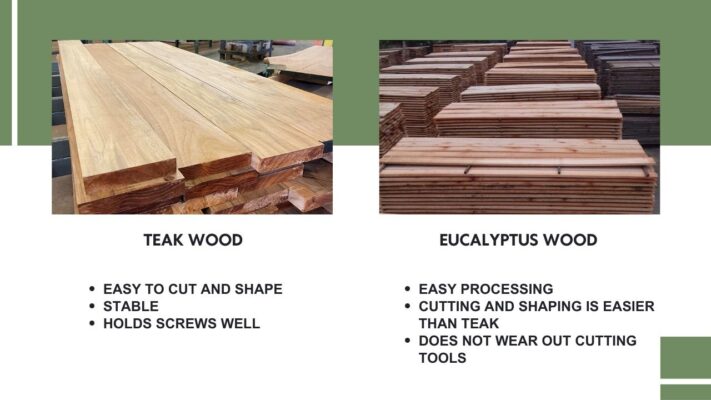
Strength & Durability
For a long time, Teak wood has been known for its superior durability and strength. It is a hard, dense wood with a tightly interlocked grain structure. Additionally, the high amount of natural oils in the wood significantly enhances its resistance to decay and pests. Moreover, Teak is well-protected against moisture and can withstand harsh weather conditions without rotting.
Eucalyptus wood is also a sturdy and dense type of wood, but it does not match the durability of Teak. Eucalyptus wood needs to be properly treated to increase its durability and pest resistance when used in outdoor projects. Eucalyptus wood is an excellent choice for indoor furniture or in covered outdoor areas.
Workability
Eucalyptus wood and Teak have different workability characteristics. Specifically, Teak is generally easier to work with due to its high natural oil and silica content. Teak can be easily cut and shaped, but gluing can be more challenging because of the high oil content. Moreover, Teak is particularly stable, with excellent ability to hold screws and nails and is good for carving. This makes it an excellent choice for artistic sculptures.
Although Eucalyptus wood is moderately hard and dense, it is easy to work with. It is especially popular for DIY projects due to its good workability. Eucalyptus can be cut and shaped more easily than Teak and does not wear down cutting tools as Teak does. However, Eucalyptus wood is prone to warping and cracking when dried.
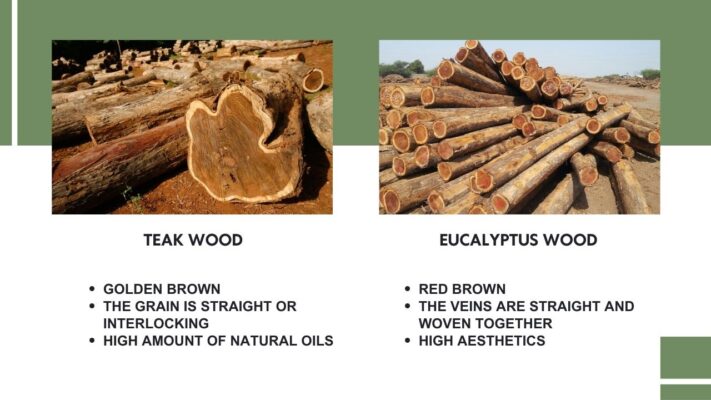
Lifespan
Teak wood furniture can last outdoors for decades, even centuries, without significant degradation, especially if maintained regularly. Its longevity is among the longest for woods used in outdoor furniture. The wood naturally has excellent resistance to decay and pests, contributing to its long lifespan.
In contrast, Eucalyptus wood furniture has a lifespan of 10-15 years outdoors, which is quite good but not as long as Teak. The lifespan can be extended with regular maintenance and proper care.
Maintenance & Care
Famous for its durability and high stability, Teak wood requires relatively low maintenance. Like other types of wood, Teak is easy to clean. Polishing it will ensure a long lifespan for your Teak wood furniture. Aged Teak has a natural golden brown color that weathers to a grayish silver over time, making this wood extremely appealing to some carpenters.
Eucalyptus wood is not as durable as Teak and requires more care and maintenance. Moreover, it needs to be polished more frequently to maintain its natural appearance, and protect against moisture and UV rays when used outdoors.
Availability & Cost
In the market, Teak wood is always a popular wood type with an extremely high demand. This also makes its availability challenging. Additionally, concerning sustainability, the harvesting of Teak wood must adhere to legal regulations. It is also one of the most expensive types of wood in the world.
In contrast, Eucalyptus wood is readily available due to its rapid growth rate. This makes it one of the cheaper hardwood options and a viable alternative to Teak
Uses
Eucalyptus wood and Teak are both widely used types of wood. Teak is a versatile wood due to its high durability and superior appearance, making it suitable for various high-end applications, including indoor and outdoor furniture, construction, and even marine uses such as boat building, yacht decks, garden decks, and architectural elements.
Eucalyptus wood is a beautiful, affordably priced wood often used as a substitute for Teak in many projects. Common applications include outdoor furniture, indoor furniture, fencing, and paper production.
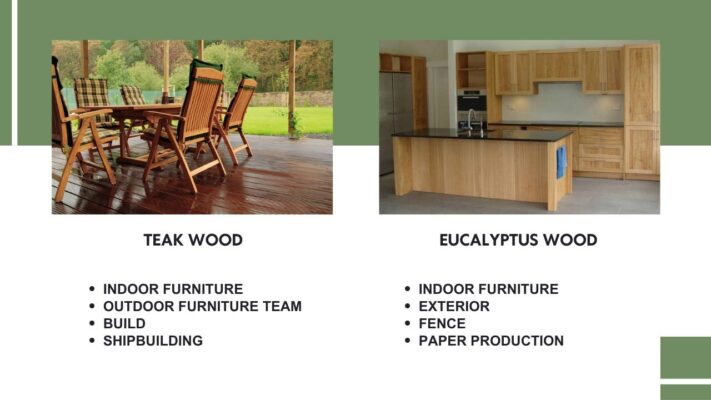
Eucalyptus wood vs Teak: Conclusion
If you are looking for a wood source where budget and availability are not issues, then Teak is certainly an excellent choice due to its durability and beauty. However, if you cannot find Teak in your area or if you have a limited budget, Eucalyptus wood will definitely be a suitable option for any of your projects.
And if you are looking for a reliable Eucalyptus wood supplier with affordable prices, contact K-TIMBER, one of the leading providers of natural hardwood, renowned for its quality worldwide. With a history of operations in over 30 countries and 20 years of experience in the field of production and supply of African wood, K-TIMBER is confident in offering FAS grade wood with a good wood ratio of up to 90% and a commitment to prices 20% cheaper than the market.
Contact K-TIMBER now for a quote and wood consultation!


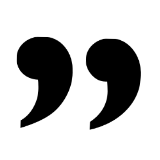
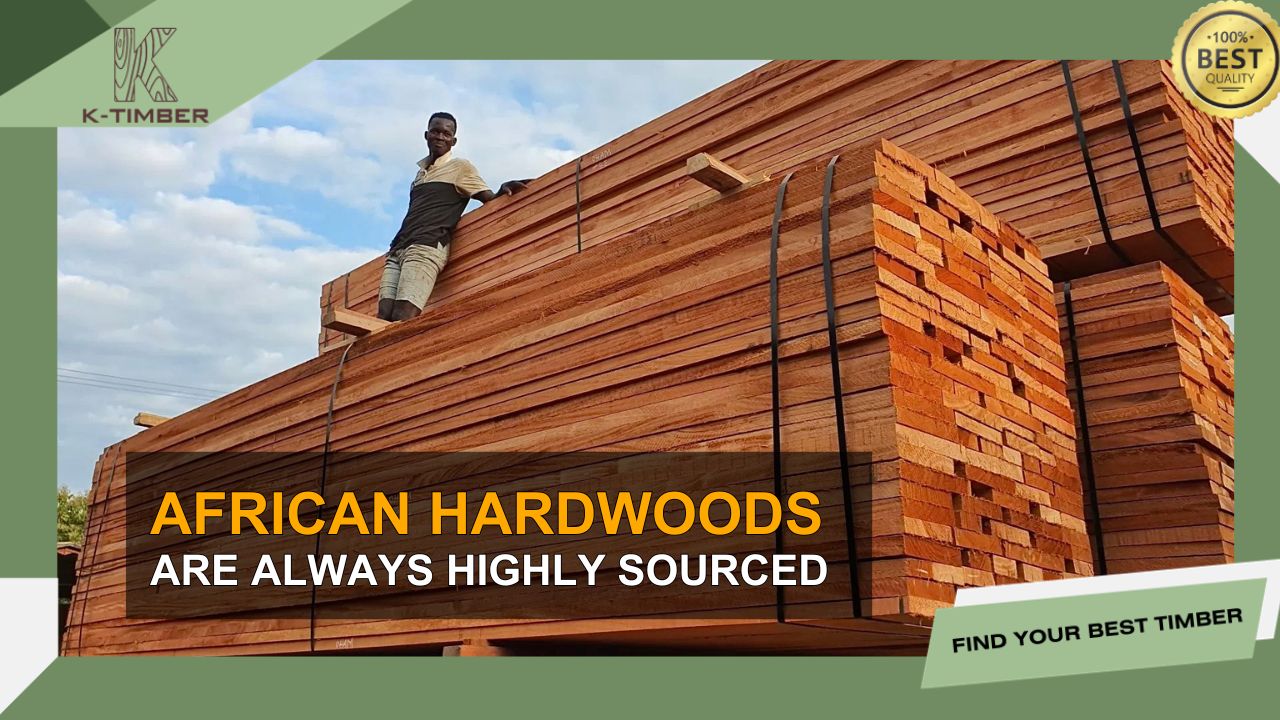
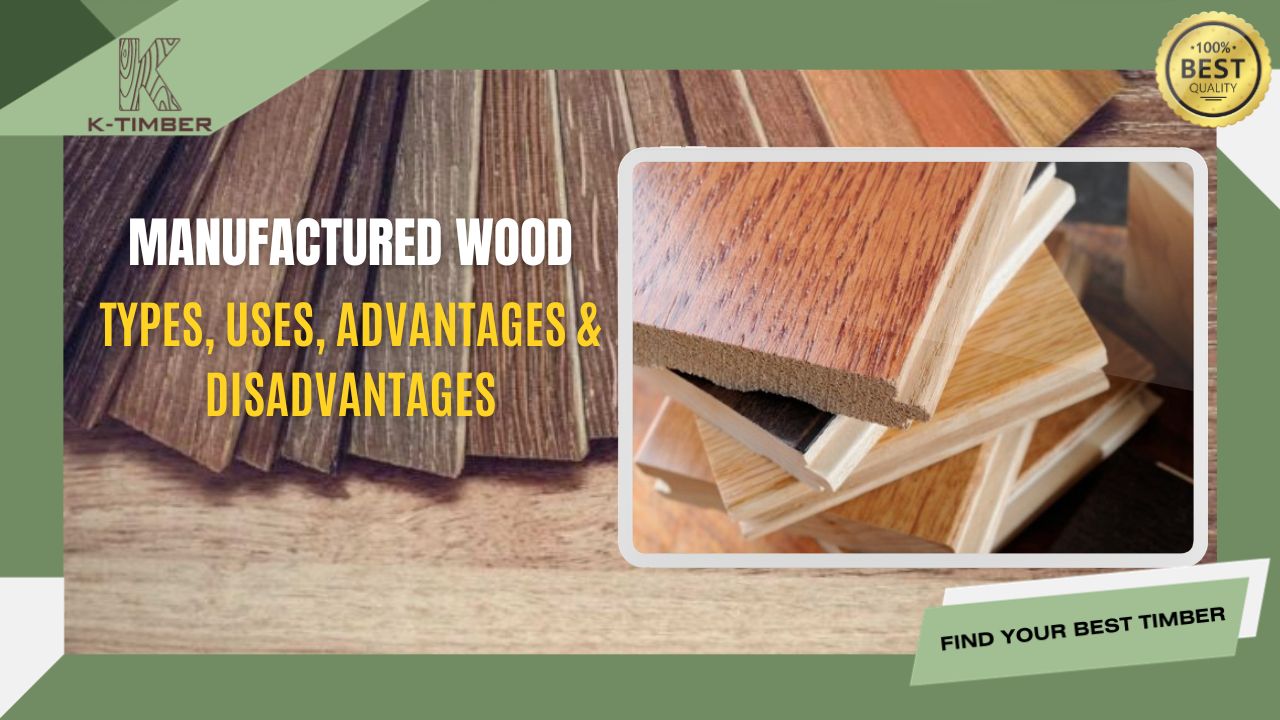
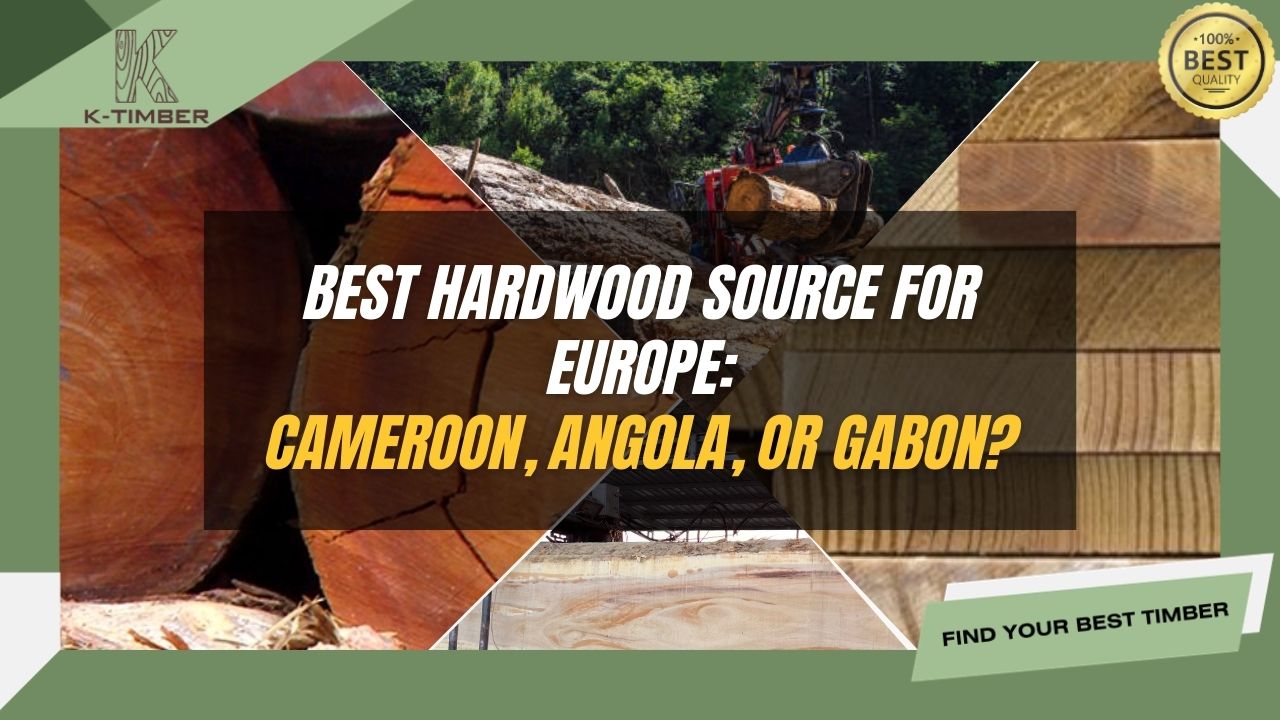
![[K-Timber] Blog Post Boder (7)](https://k-timbers.com/wp-content/uploads/2024/07/K-Timber-Blog-Post-Boder-7.png)
